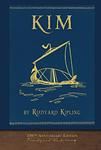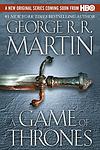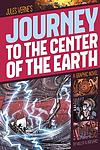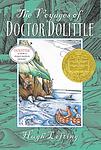The Greatest "Fiction, Travel" Books of All Time
Click to learn how this list is calculated.
This list represents a comprehensive and trusted collection of the greatest books. Developed through a specialized algorithm, it brings together 300 'best of' book lists to form a definitive guide to the world's most acclaimed books. For those interested in how these books are chosen, additional details can be found on the rankings page.
Genres
The "Travel" category of books encompasses a wide range of literature that focuses on exploring new places, cultures, and experiences. These books can be memoirs, guidebooks, travelogues, or even fiction that takes the reader on a journey to a different part of the world. The genre is characterized by its emphasis on adventure, discovery, and personal growth, as well as its ability to transport readers to far-off lands and immerse them in new and exciting cultures. Whether you're looking for inspiration for your next trip or simply want to explore the world from the comfort of your own home, the Travel category has something for everyone.
Countries
Date Range
Reading Statistics
Click the button below to see how many of these books you've read!
Download
If you're interested in downloading this list as a CSV file for use in a spreadsheet application, you can easily do so by clicking the button below. Please note that to ensure a manageable file size and faster download, the CSV will include details for only the first 500 books.
Download-
1. Adventures of Huckleberry Finn by Mark Twain
The novel follows the journey of a young boy named Huckleberry Finn and a runaway slave named Jim as they travel down the Mississippi River on a raft. Set in the American South before the Civil War, the story explores themes of friendship, freedom, and the hypocrisy of society. Through various adventures and encounters with a host of colorful characters, Huck grapples with his personal values, often clashing with the societal norms of the time.
-
2. Heart of Darkness by Joseph Conrad
This classic novel follows the journey of a seaman who travels up the Congo River into the African interior to meet a mysterious ivory trader. Throughout his journey, he encounters the harsh realities of imperialism, the brutal treatment of native Africans, and the depths of human cruelty and madness. The protagonist's journey into the 'heart of darkness' serves as both a physical exploration of the African continent and a metaphorical exploration into the depths of human nature.
-
3. Gulliver's Travels by Jonathan Swift
This classic satire follows the travels of a surgeon and sea captain who embarks on a series of extraordinary voyages. The protagonist first finds himself shipwrecked on an island inhabited by tiny people, later discovers a land of giants, then encounters a society of intelligent horses, and finally lands on a floating island of scientists. Through these bizarre adventures, the novel explores themes of human nature, morality, and society, offering a scathing critique of European culture and the human condition.
-
4. Treasure Island by Robert Louis Stevenson
This classic adventure novel tells the story of young Jim Hawkins, who stumbles upon a treasure map and embarks on a perilous journey to find the buried treasure. Along the way, he encounters a host of memorable characters, including the cunning and treacherous Long John Silver. The narrative is filled with action, intrigue, and suspense, as Hawkins and his companions face pirates, mutiny, and other dangers in their quest for the hidden treasure.
-
5. The Wind in the Willows by Kenneth Grahame
"The Wind in the Willows" is a charming tale about the adventures of four anthropomorphic animal friends - Mole, Rat, Badger, and the rebellious and extravagant Toad. The story is set in the idyllic English countryside and explores themes of friendship, exploration, and respect for nature. The narrative is marked by Toad's reckless behavior, his obsession with motor cars, and his eventual redemption. The other characters, with their contrasting personalities, bring balance and depth to the story.
-
6. The Moviegoer by Walker Percy
The protagonist, a young stockbroker in New Orleans, is alienated, detached, and finds more reality in movies and books than in his everyday life. He searches for meaning in life, often through his relationships with his aunt and his cousin, while also dealing with existential dread and the impending reality of turning 30. This exploration of alienation and search for identity in the modern world won the National Book Award for Fiction.
-
7. Kim by Rudyard Kipling
"Kim" is a thrilling adventure set in India during the height of the British empire. The story follows the life of a young Irish orphan, Kimball O'Hara, who grows up on the streets of Lahore. Kim's life takes a dramatic turn when he becomes involved in the 'Great Game', the political conflict between Russia and Britain in Central Asia. Guided by an old Tibetan Lama on a spiritual quest, Kim is recruited by the British secret service and sent on a dangerous mission across the Himalayas. The novel explores themes of identity, imperialism, and East vs. West.
-
8. The Road by Cormac McCarthy
In a post-apocalyptic world, a father and his young son journey through a desolate landscape, struggling to survive. They face numerous threats including starvation, extreme weather, and dangerous encounters with other survivors. The father, who is terminally ill, is driven by his love and concern for his son, and is determined to protect him at all costs. The story is a haunting exploration of the depths of human resilience, the power of love, and the instinct to survive against all odds.
-
9. Austerlitz by W. G. Sebald
The novel follows the story of Jacques Austerlitz, an architectural historian who was brought to England on a Kindertransport from Czechoslovakia during World War II. As an adult, Jacques embarks on a journey to uncover his past, including his original identity, his parent's fate, and his own lost history. The narrative is a haunting exploration of memory, identity, and the lasting impact of the Holocaust.
-
10. The Sheltering Sky by Paul Bowles
"The Sheltering Sky" is a novel about an American couple, Port and Kit Moresby, who travel to the North African desert accompanied by their friend Tunner. The journey, initially an attempt to cure their marital woes, quickly descends into a harrowing journey of self-discovery and exploration of the human condition. As they move further into the desert, the harsh environment and their isolation from the outside world push them to their psychological limits, leading to devastating consequences.
-
11. A Game of Thrones by George R. R. Martin
This epic fantasy novel is set in the Seven Kingdoms of Westeros, where 'summers span decades and winters can last a lifetime'. The story follows three main plot lines: the Stark family's struggle to control the North; the exiled Targaryen siblings' attempt to regain the throne; and the Night's Watch's fight against the supernatural beings beyond the Wall. As these stories intertwine, a game of power, politics, and survival unfolds, where you either win or you die.
-
12. Journey to the Center of the Earth by Jules Verne
This science fiction novel revolves around a German professor who believes there are volcanic tubes leading to the center of the Earth. He, his nephew, and their guide embark on an adventurous expedition down an Icelandic volcano into the Earth's core. They encounter prehistoric animals, natural disasters, and otherworldly phenomena along their journey. The expedition is both thrilling and dangerous, testing the limits of their courage and survival skills.
-
13. A Midsummer Night's Dream by William Shakespeare
In this classic play, the Duke of Athens is preparing for his marriage when the lives of two young couples become complicated by the meddling of fairies. The fairy king and queen, Oberon and Titania, are quarreling, causing chaos in both the fairy world and the world of mortals. Puck, a mischievous sprite and servant of Oberon, causes further confusion and comic misadventures by casting spells that lead to mistaken identities and misplaced affections. Eventually, all is resolved, and the play ends with three happily married couples.
-
14. The Razor's Edge by W. Somerset Maugham
"The Razor's Edge" is a novel that explores the life of a young American, Larry Darrell, who rejects conventional society to search for spiritual enlightenment in the aftermath of World War I. His journey takes him from Illinois to Paris, and eventually to India. The story is narrated by an unnamed author who encounters Larry at various stages of his life, and through his eyes, we see Larry's transformation and the impact it has on the people around him. The novel is a profound exploration of self-discovery, spirituality, and the quest for meaning.
-
15. The Expedition of Humphry Clinker by Tobias Smollett
This novel is a humorous epistolary narrative, told through a series of letters, that follows the adventures of the Bramble family as they travel throughout England and Scotland. The family's travels are filled with a variety of comical incidents, and their encounters with different people and places provide a satirical commentary on 18th century British society. The novel also explores themes of class, romance, and the contrast between city and country life.
-
16. The Rings of Saturn by W. G. Sebald
"The Rings of Saturn" is a richly detailed travelogue that follows the narrator's journey along the coast of Suffolk, England. The narrative weaves together history, literature, and personal anecdotes, exploring topics as diverse as the decline of the herring industry, the horrors of colonialism in the Congo, and the life of philosopher Sir Thomas Browne. The book is characterized by its melancholic tone, its digressive style, and its meditative reflections on memory, time, and decay.
-
17. A Sentimental Journey Through France and Italy by Laurence Sterne
This novel follows the travels of a charming and sensitive man, who journeys through France and Italy, engaging in philosophical debates, falling in and out of love, and experiencing a variety of comedic misadventures. Along the way, he encounters a diverse array of characters, each with their own unique stories and perspectives. The novel is a humorous and satirical critique of travel literature of the time, with a focus on the human condition and the nature of sentimentalism.
-
18. Vathek by William Beckford
This gothic novel follows the story of Vathek, a cruel and decadent ninth-century Caliph who, driven by his insatiable quest for knowledge and power, makes a pact with the devil, Iblis. In exchange for unlimited power, Vathek promises to sacrifice his children. The narrative takes a dark turn as Vathek descends into a hell of his own making, filled with torment and regret, ultimately leading to his downfall. The novel explores themes of ambition, morality, and the destructive potential of unregulated power.
-
19. The Towers Of Trebizond by Rose Macauley
"The Towers of Trebizond" is a humorous and thought-provoking novel that follows the journey of a young woman and her eccentric aunt as they embark on a trip to Turkey. Through their adventures and encounters with various characters, the book explores themes of religion, love, and the clash between tradition and modernity. With its witty narration and insightful observations, the novel offers a captivating exploration of faith and identity.
-
20. Haroun and the Sea of Stories by Salman Rushdie
The book is a fantastical children's novel that explores the importance of storytelling. It follows the journey of a young boy named Haroun who sets out on a magical adventure to restore his father's ability to tell stories. Along the way, he encounters a vast array of colorful characters and strange lands, including a Sea of Stories. The narrative addresses themes of censorship, the power of storytelling, and the struggle between light and darkness.
-
21. Daisy Miller by Henry James
"Daisy Miller" is a novella that explores the social differences between American and European society in the late 19th century. The story follows a young, affluent American woman named Daisy Miller, who defies societal norms while traveling in Europe. Her flirtatious behavior and disregard for European customs create a scandal among the upper-class expatriate community, particularly catching the attention of a young American man who is both attracted to and repulsed by her nonconformity. Ultimately, Daisy's refusal to conform to societal expectations leads to her downfall.
-
22. Pilgrimage by Dorothy Richardson
"Pilgrimage" is a sequence of semi-autobiographical novels that follow the life of the protagonist, Miriam Henderson, through her journey of self-discovery in the late 19th and early 20th centuries. The narrative explores Miriam's experiences, thoughts, and feelings, as she navigates through her life, dealing with issues of feminism, love, and social expectations. The book is notable for its stream of consciousness writing style, which allows readers to experience Miriam's inner world in a profound and intimate way.
-
23. The River Sutra by Gita Mehta
"The River Sutra" by Gita Mehta is a captivating novel that explores the intertwining lives of various characters along the sacred river Narmada in India. Through vivid storytelling and rich descriptions, the book delves into themes of spirituality, love, and the search for meaning in life. As the characters embark on journeys of self-discovery, the river serves as a powerful metaphor for the flow of life and the interconnectedness of all beings. With its lyrical prose and thought-provoking narrative, "The River Sutra" offers a profound exploration of the human experience and the timeless wisdom of ancient traditions.
-
24. The Voyages of Doctor Dolittle by Hugh Lofting
The Voyages of Doctor Dolittle follows the eccentric Doctor, who has the unique ability to communicate with animals in their own languages. Accompanied by his young apprentice Tommy Stubbins, the Doctor embarks on a thrilling journey around the world, encountering a host of exciting adventures and interesting creatures. From a giant pink sea-snail to a floating island and a mysterious sea monster, the Doctor uses his special skills to help animals in need and solve mysteries along the way.
-
25. Journey to the Alcarria by Camilo José Cela
"Journey to the Alcarria" is a travel literature piece that takes the reader on a journey through the Alcarria region in Spain. The protagonist, a solitary traveler, explores the landscape, culture, and people of this region, offering detailed descriptions and observations. The narrative captures the essence of Spain's post-war period, revealing the harsh realities of rural life and the resilience of its people. The book is both a physical journey through a specific place and a metaphorical journey into the human condition.
Reading Statistics
Click the button below to see how many of these books you've read!
Download
If you're interested in downloading this list as a CSV file for use in a spreadsheet application, you can easily do so by clicking the button below. Please note that to ensure a manageable file size and faster download, the CSV will include details for only the first 500 books.
Download























